2018 dealt a crushing blow when it was announced that Ursula K. Le Guin passed away on January 22. At 88 years young, Le Guin was anything but forgettable, a Grandmaster of Science Fiction, a Hugo, Nebula, Locus, World Fantasy, and Pulitzer award winner, among many others.
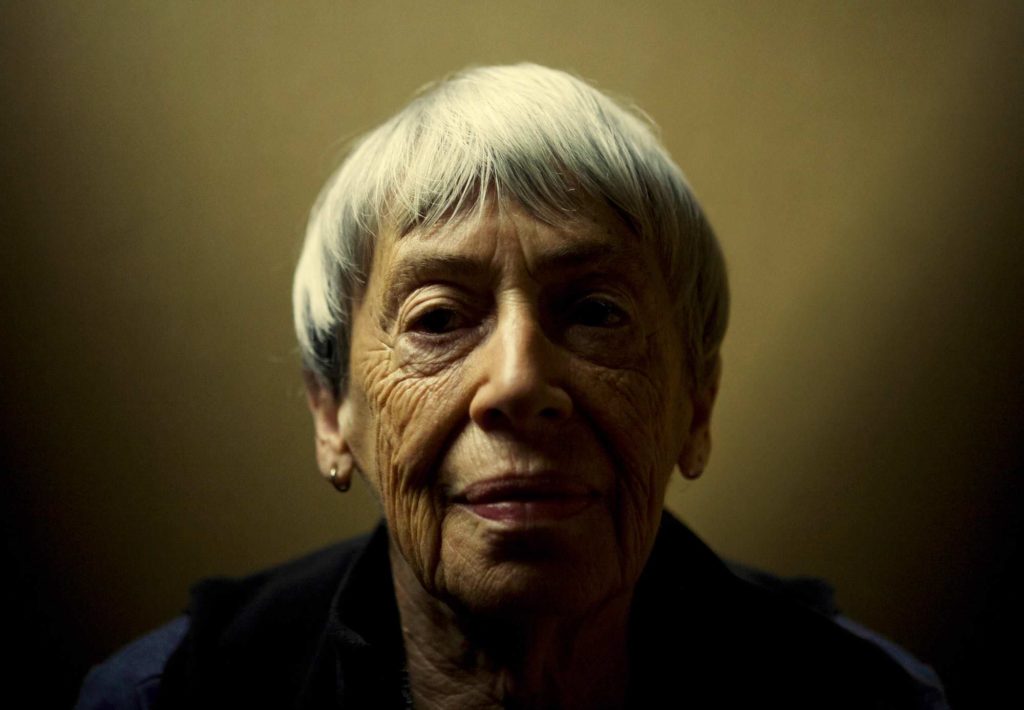
Photo by Benjamin Reed
Here at Speculative Chic, we’ve talked about how Le Guin Changed the Map, but what about how her fiction and nonfiction has affected us personally? Le Guin didn’t change the map in just her genre, but she changed the map for us individually.
Today, we present our February Roundtable: Speculative Chic’s tribute to Ursula K. Le Guin.
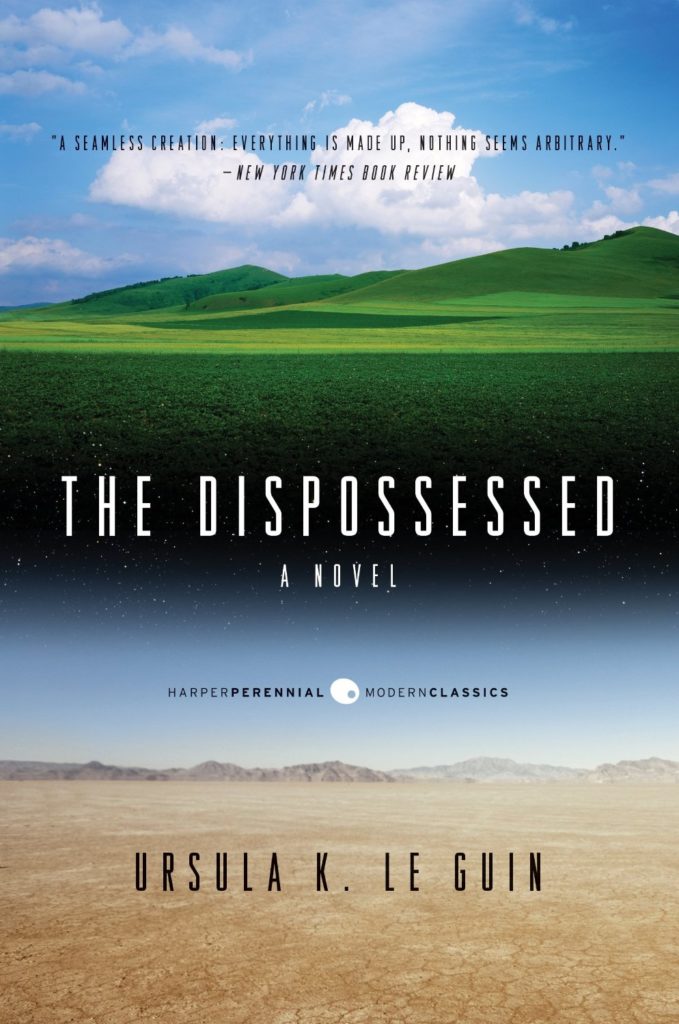 Shara: I didn’t like the first book I read of Ursula K. Le Guin’s. Until I realized I did.
Shara: I didn’t like the first book I read of Ursula K. Le Guin’s. Until I realized I did.
Let me explain: after graduating college, I was floundering in that transition period of still feeling like a college student and trying to be an adult in the real world. To delay being an adult as much as possible, I audited a few courses at a local college in hopes those courses would help me get into graduate school. One of those courses was titled “Modern Science Fiction and Fantasy” (and yes, it did help me get into graduate school, thank you very much). In this course, in addition to J.R.R. Tolkien, Connie Willis, Ray Bradbury, C.S. Lewis, Robert Silverberg, and James Morrow, I read what I thought was my very first Ursula K. Le Guin: A Wizard of Earthsea.
I didn’t see what the big deal was.
To be fair, I’d read this book after having consumed what was available of the Harry Potter series at the time, and I could certainly appreciate that Le Guin came up with the idea of a wizarding school long before J.K. Rowling did. Yet — as is often my experience with classics — I found myself unable to connect to the material because it wasn’t my gateway to the concept.
There were other things, however, that did catch my attention: the essence of balance, and how the book didn’t end the way one expects an epic fantasy to end. I was grateful not to have read this book outside of a classroom setting, because the professor was passionate about the work and able to discuss ideas that I would’ve never gleaned on my own.
Fortunately for me, A Wizard of Earthsea wasn’t the only Le Guin we read in that course. The second was The Dispossessed, which I approached with some trepidation.
This? This I loved. Maybe because it was science fiction and that captured my heart in a way the fantasy couldn’t. Maybe because it was my first experience with what is now a favorite mode of storytelling: the braided narrative. Maybe because it’s just so damned genius. The Dispossessed is what cemented me as an Ursula K. Le Guin fan, what made me start seeking out her catalog and reading her fiction independently. It’s also what made me become an avid reader of her essays (Dancing at the Edge of the World, The Language of the Night). She taught me what it meant to be a feminist; she taught me to question things about the world I’d previously taken for granted.
I haven’t loved everything of hers I’ve read, but I’ve also not come close to reading everything, either. I did decide, though, to go back and revisit A Wizard of Earthsea with a fresh pair of eyes about seven years after my initial reading, and I ended up appreciating it so much more (and finishing the original trilogy).
Oh, and you know how I said I thought A Wizard of Earthsea was the first Le Guin I’d ever read? Turns out, it wasn’t: Le Guin was responsible for one of my favorite childhood stories: Catwings. Gorgeously illustrated, the tale enchanted my childhood self, and how could it not? It was about cats with wings!
So I guess I fell in love with Le Guin the first time I read her work, after all.
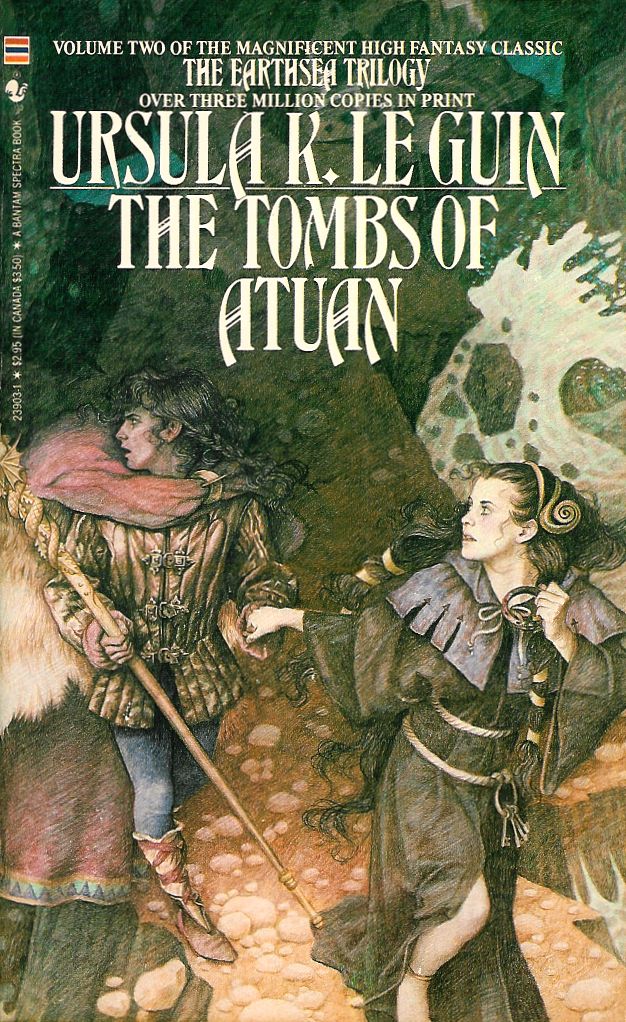 Calie: Ursula K. Le Guin taught me two very important things about writing.
Calie: Ursula K. Le Guin taught me two very important things about writing.
- Write whatever you want.
- Use your real name.
She was my response to everything from “Only men can write science fiction,” (“But, Ursula…”), “You should stick to one genre,” (“But, Ursula…”), “You should use your initials if you’re a woman,” (“But, Ursula…”), “You shouldn’t be political…”
BUT URSULA!
“But, Ursula…” was a large part of my writing mantra, still is, and forever will be. I found her first with Earthsea (although I was ever more a fan for Tenar and The Tombs of Atuan), then devoured, well, everything I could get my hands on. She wrote fantasy, she wrote science fiction, she wrote literary fiction, she subverted and expanded every genre she put her self into. She was bold, never afraid to be too political, to have a strong point of view.
In the end, for this end, I wanted to let her speak for herself (excerpt from page 54 of The Farthest Shore):
“Are you dead now?”
“No. Alive. Alive. Only once I was a dragon… I’m not dead. I sleep sometimes. Sleep comes very close to death, everyone knows that. The dead walk in dreams, everyone knows that. They come to you alive, and they say things. They walk out of death into the dreams. There’s a way. And if you go on far enough there’s a way back all the way. All the way. You can find it if you know where to look. And if you’re willing to pay the price.”
“What price is that?” Sparrowhawk’s voice floated on the dim air like the shadow of a falling leaf.
“Life — what else?”
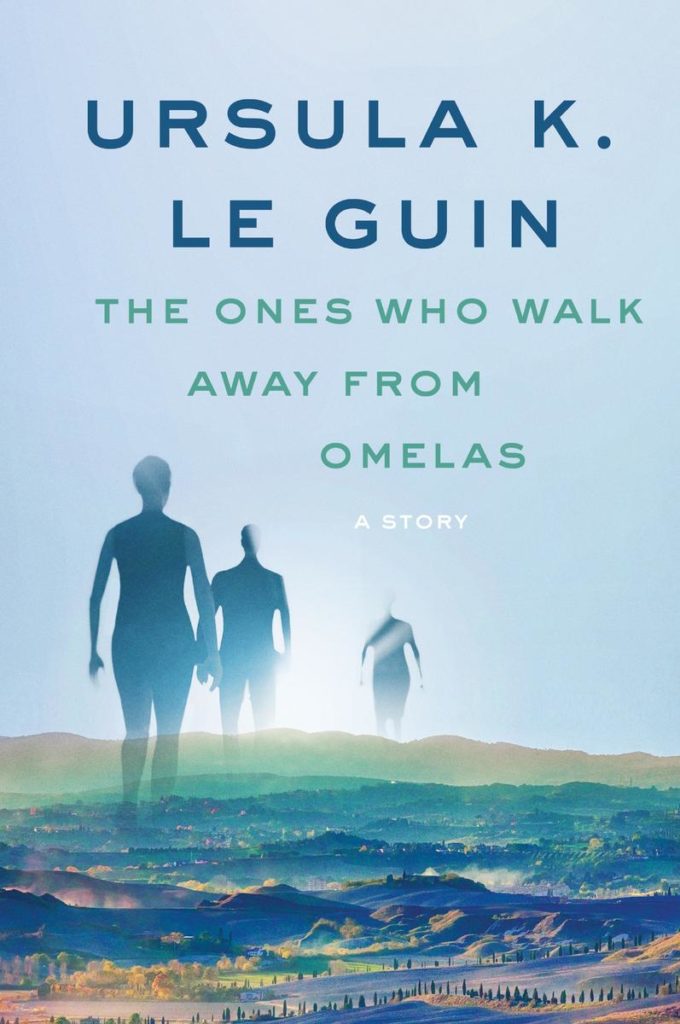 Ronya: I grew up reading science fiction and fantasy, but as a former anthropology student, I actually grew up knowing more about Ursula K. Le Guin’s parents, Alfred & Theodora Kroeber, who were anthropologists in California near the turn of the century. I had no idea that the “K.” in “Ursula K. Le Guin” stood for “Kroeber” until I was doing research for a paper and found an obscure reference in a library encyclopedia entry. Then I cross-referenced. And cross-referenced again. If three reliable sources mention it, it must be true.The first Le Guin story I read was the horrifying “The Ones Who Walk Away From Omelas” for a college course on short fiction. My best friend had tried to get me to read Earthsea for years, but I put it off. Until one day I saw it in the bookstore: I bought it, took it home and read it.
Ronya: I grew up reading science fiction and fantasy, but as a former anthropology student, I actually grew up knowing more about Ursula K. Le Guin’s parents, Alfred & Theodora Kroeber, who were anthropologists in California near the turn of the century. I had no idea that the “K.” in “Ursula K. Le Guin” stood for “Kroeber” until I was doing research for a paper and found an obscure reference in a library encyclopedia entry. Then I cross-referenced. And cross-referenced again. If three reliable sources mention it, it must be true.The first Le Guin story I read was the horrifying “The Ones Who Walk Away From Omelas” for a college course on short fiction. My best friend had tried to get me to read Earthsea for years, but I put it off. Until one day I saw it in the bookstore: I bought it, took it home and read it.
I loved it. I wasn’t hooked, though. I didn’t go out and try to find every Le Guin book and read it.
Okay, I did. I tried The Tombs of Atuan and gave up within the first 20 pages. I still haven’t read it. That didn’t stop me from reading Le Guin’s interviews, following along with her blog, or finally reading The Lathe of Heaven ten years ago.
My takeaway of Ursula Le Guin is this: that she was a fabulous, intelligent person who enjoyed life, championed creativity, and thought of art as the foundation to society. She liked talking to readers through her work. She was relentless, opinionated, subversive, feminist, and unapologetic, not one to shirk from sharing her views, not in the same brash way as Carrie Fisher, whose death also hit everyone hard, but she did so with gentle wit, an innate sense of self-possession, and an adept use of language.
I don’t think anyone will forget Le Guin’s takedown of SyFy’s adaptation of her Earthsea books, or publishers for misrepresenting her characters on book covers. She did not “mellow with age;” she became more incisive, remaining larger than life yet down to earth — warmth and humor intact.
I never finished my anthropology degree; partly because I burned out on school and partly because I felt that as a discipline committed to observation and preservation, anthropology often refuses to critique its methods. In reading Le Guin’s stories, it’s easy to see the influence of the anthropological profession on her worldview and writing. But she also promoted a kind of uneasiness. She populated her stories with nuanced, complex individuals and cultures. She moved between science fiction and fantasy; she delivered stories about magic that managed to feel ordinary, that looked polished, yet somehow felt uneven, and this juxtaposition of unfinishedness made for an open-endedness that lent itself to creativity, and questions about the world around me, at least on my part.
And that’s why I like her writing, because it helps me consider the complexities, the fullness, and the limitations of societies and individuals. I have a lot of her work left to read, and I look forward to it.
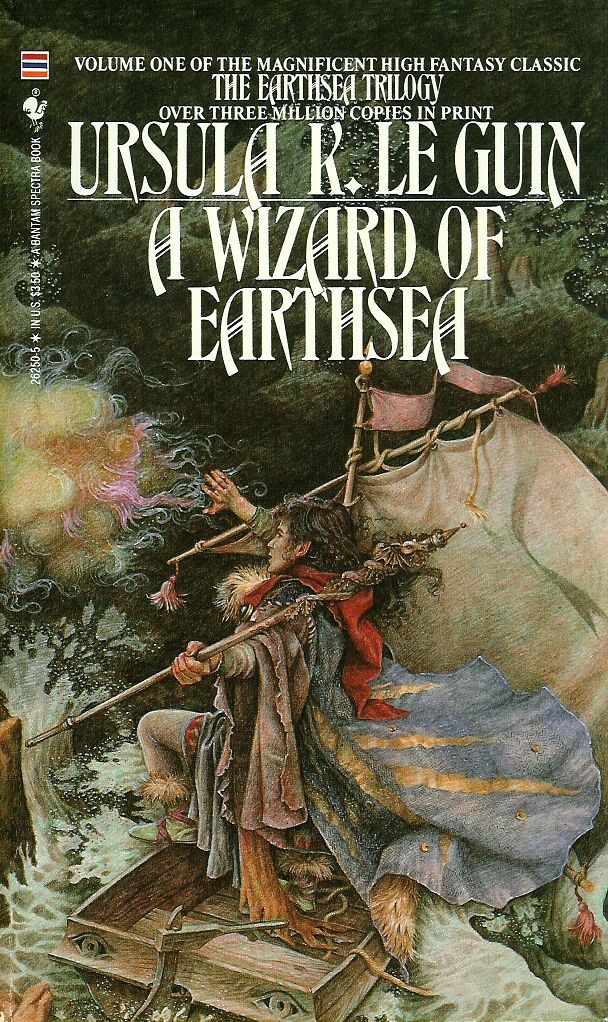 Merrin: I came to Ursula K. Le Guin a little later in life, and I’m actually kind of glad that I did. I first read the Earthsea series in 2010, all five books back-to-back. It was April going into May, and I didn’t know yet that later that summer I’d be moving back home to Texas after three years in Oklahoma City. I had just lost the car that I had finally paid off in a hail storm, so I was definitely already dealing with some existential crisis.
Merrin: I came to Ursula K. Le Guin a little later in life, and I’m actually kind of glad that I did. I first read the Earthsea series in 2010, all five books back-to-back. It was April going into May, and I didn’t know yet that later that summer I’d be moving back home to Texas after three years in Oklahoma City. I had just lost the car that I had finally paid off in a hail storm, so I was definitely already dealing with some existential crisis.
I didn’t know going in that Le Guin adhered to Taoist philosophies, or that those philosophies would tie so much into the series, and that’s partly why I’m glad I came at them after I’d already gotten a bachelor’s in religious studies. Which isn’t to say that you need a religion degree to understand them, but in some respects, I might have.
Taoism is all about balance, life and death and living life in harmony between the two. Every action has an equal, opposite reaction. (Aside: bonus points if you sang that like Daveed Diggs as Thomas Jefferson.) And I think I liked most that in the end (of the original Earthsea trilogy, at least), Ged ended up where he’d begun. He wasn’t as he’d left, the spark and the potential that set him on his journey had been used up and altered. His journey had changed him in so many ways but not without balance.
I connected with that a lot as I moved back home to Texas. I’d moved up to Oklahoma to work in a church for a pastor I knew pretty well, and that job didn’t pan out. I ended up unemployed for two months, literally depending on my friends to support me. Oklahoma in a lot of ways felt like my trial by fire in life, my epic quest, the battle I fought but did not escape unscathed. Yes, I realize it’s absolutely ridiculous to think of OKLAHOMA, where the wind comes sweeping down the plains, as an actual battlefield, but that’s honestly what it felt like to me.
So I thought about that balance as I drove south of the Texas state line that fall. I thought about Ged returning to his island, devoid of the gifts he’d left it with, but wiser, and not unhappy. And I took a lot of comfort in the sense of balance and equilibrium that he found, that good and bad things happen equally, and we must embrace both to be whole. That sometimes, the enemy we have to conquer is ourselves. And I’ll always be grateful to Ursula K. Le Guin for that lesson.

I couldn’t really think of a way to say what she meant to me, because she kind of defies categorizing. I know that her collection of short fiction The Wind’s Twelve Quarters instilled in me the idea that precision in words mattered. And mattered immensely. I read A Wizard of Earthsea and learned that characters could make terrible mistakes and still be our protagonists…. Pretty much every time I read her books, I was confronted with something that made me stop, think, and reassess something I assumed I knew. I am still filled with rage that I missed studying under her during her teaching stint at Beloit. Now I’m thinking I should go back and reread, and read the many essays she wrote that I missed.
I’ve actually never read anything by Ursula Le Guin but I did get The Left Hand of Darkness from the library after she died. I also intend to read “The Ones Who Walk Away from Omelas” after reading this very interesting blog post: http://cindywords.com/he-left-the-ninety-nine-sheep-for-one/